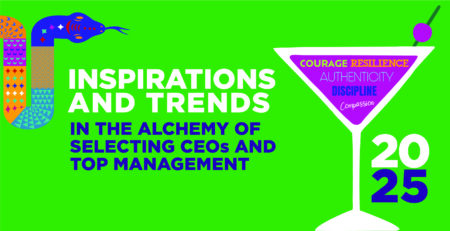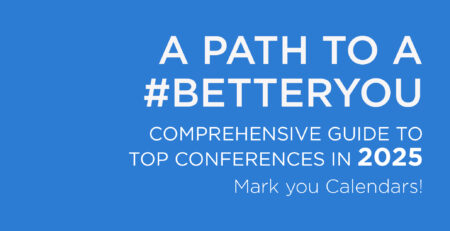How has the integration of new managers changed in covid-19 by Anderson Willinger
How has the integration of new people changed in the time of covid-19? By Anderson Willinger, executive search experts
Jakub worked for a prestigious company for many years. He was successful, flexible and hardworking. His superior offered him an international career.
After years, he returned for family reasons. That was exactly in June last year.
He began negotiations with a new company. His new boss was enthusiastic about him, the video interviews ran like clockwork. Clear, concise. Jakub was always ready, he looked professional, he always got to the point and he didn’t waste time.
Jakub was looking forward to a new environment, a new team, greater decision-making and fewer corporate responsibilities.
After three months of working together, the warm team environment began to get cold. Jakub only saw his team twice and his new boss 4 times. Otherwise, everything took place online.
Jakub did not understand why his boss, whenever he started asking for an understanding of the assignment, felt nervousness and time pressure in his voice.
His boss did not understand where Jakub’s straightforwardness and speed of action had disappeared. In addition, he expected Jakub to deliver results much faster due to his vigour.
After six months, the employment relationship was terminated. Jakub left with the feeling that the company was not ready to have such a capable manager, and his boss with the feeling that Jakub fits into the corporation, but certainly not into a dynamic environment.
Would the story of Jakub turn out the same if he saw his boss and his team at work every day?
According to surveys of Anderson Willinger, executive search experts, during the pandemic, the departure of new employees increased by 17% during the first three months of employment. Further surveys show that up to half of all externally hired managers are not managing their role as expected.
Learning is no longer an option but a necessity.
According to Anderson Willinger, executive search, the main topic of the success of integration is reflected in the basic human qualities. Humbleness to learn again. E. Schein, an expert in organizational management, states that “learning is no longer an option, but a necessity, and therefore the most urgent priority is to acquire to learn and learn faster”.
Learning, right now, involves getting rid of old habits, the world will no longer fly, anyway.
This is confirmed by Miroslava Stodolicová, the new CFO, Abbvie: I really feel like a student. In my case, this is multiplied by the fact that I am integrating into a new role in a completely different industry.
František Mala, new CEO, Euromedia adds: It is important to adapt to the new way of doing things, both on a visible and invisible level.
At the visible level, for example:
- Prepare and agree on a clear integration plan for the first months. Tune this plan with subordinates and hear their opinion. Learn to manage time in a new environment, ask new colleagues for time. Clarify assignments and expectations with a new superior, as well as verify that everything is fulfilled.
František Mala points out the fact that his field of business is hit hard. In particular, the closure of stores raises concerns about the economic impact. Discussions with his employees are key for him to adapt quickly, he needs to know their opinions, feelings, expectations and suggestions. Given the current situation, this part is certainly much more difficult than if it was under normal circumstances. It requires more time and also learning.
At an invisible level:
- Accepting the loss of social interaction and especially the anxiety of the unknown both in oneself and in others.
- Reflect more, show interest in one’s feelings, in others, in employees, in your boss and connect people more.
Irina Bolotová, HR Director of East Europe, Lenovo adds: During my first month at Lenovo, I realized that I had met and had detailed discussions with 56 new colleagues, what was not only a challenge for me, but also for the most extroverted people I know. So I’m still learning how to build trust and deliver my message in this new reality of online interaction and leadership. I turn on my webcam during regular calls and I have noticed that it has a positive impact on the energy and level of satisfaction of all participants. It’s definitely a good experience that I’d like to share.
As we learn best by observing others, it is necessary to develop new skills that help us quickly figure out the behaviour and habits of the new society. The first thing is to start asking and listening, not only what the person says, but also observe the manner he says it and what his facial expressions say.
I think, Irina Bolotová says, that during the pandemic, basic human qualities, such as our ability to tolerate discomfort, became the most important of all leadership skills. When it comes to working with people, the most important are their emotional needs, generating a lot of energy, enthusiasm for common goals and also connecting people.
Pavel Riegger, the new CEO of Trask, adds: I am becoming more and more aware that true value lies in human potential, which is why I have learned to give people more space.
What about Jakub and his boss?
What if Jakub listened more to the habits of society as well as better understood who his superior was, why he needed him and how he communicated. This is now largely neglected in the online world of recruitment.
What if his boss showed a dose of empathy, not only towards Jakub but especially towards himself, why he acts the way he does. Maybe he didn’t have to waste the time and money he put to Jakub and his integration.
As Miroslava Stodolicová finally asks: Isn’t one of the main tasks of leaders to be here for their people and to be able to help them overcome these changes and direct them to their successful growth in the future?



